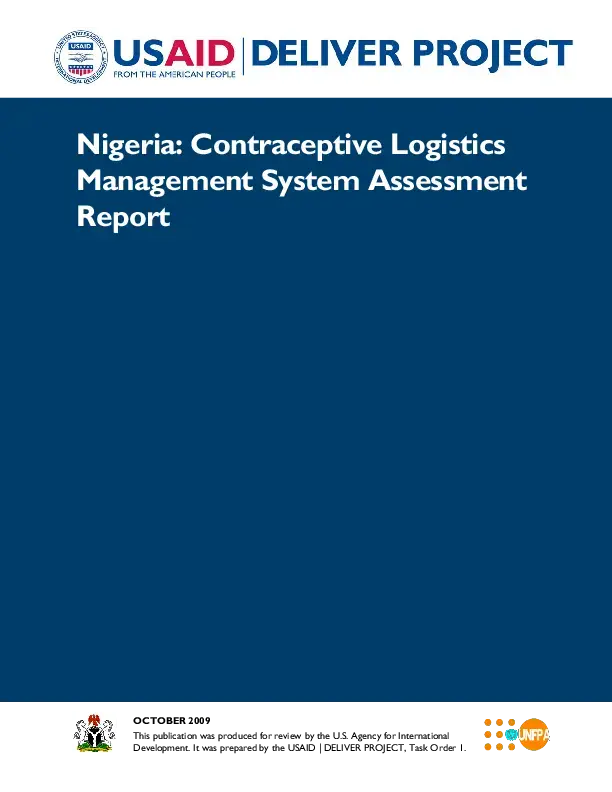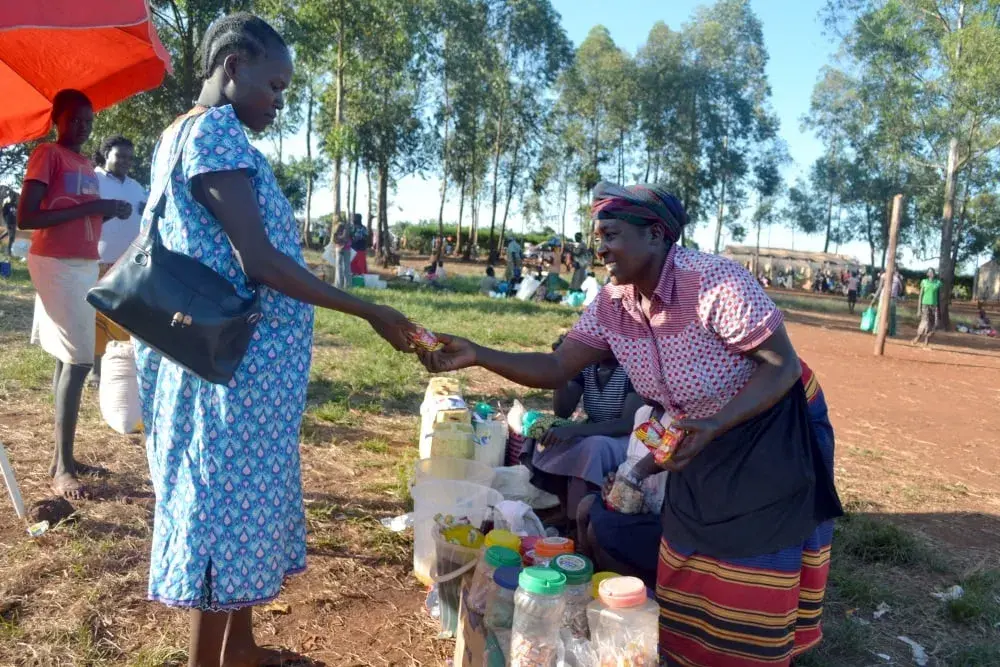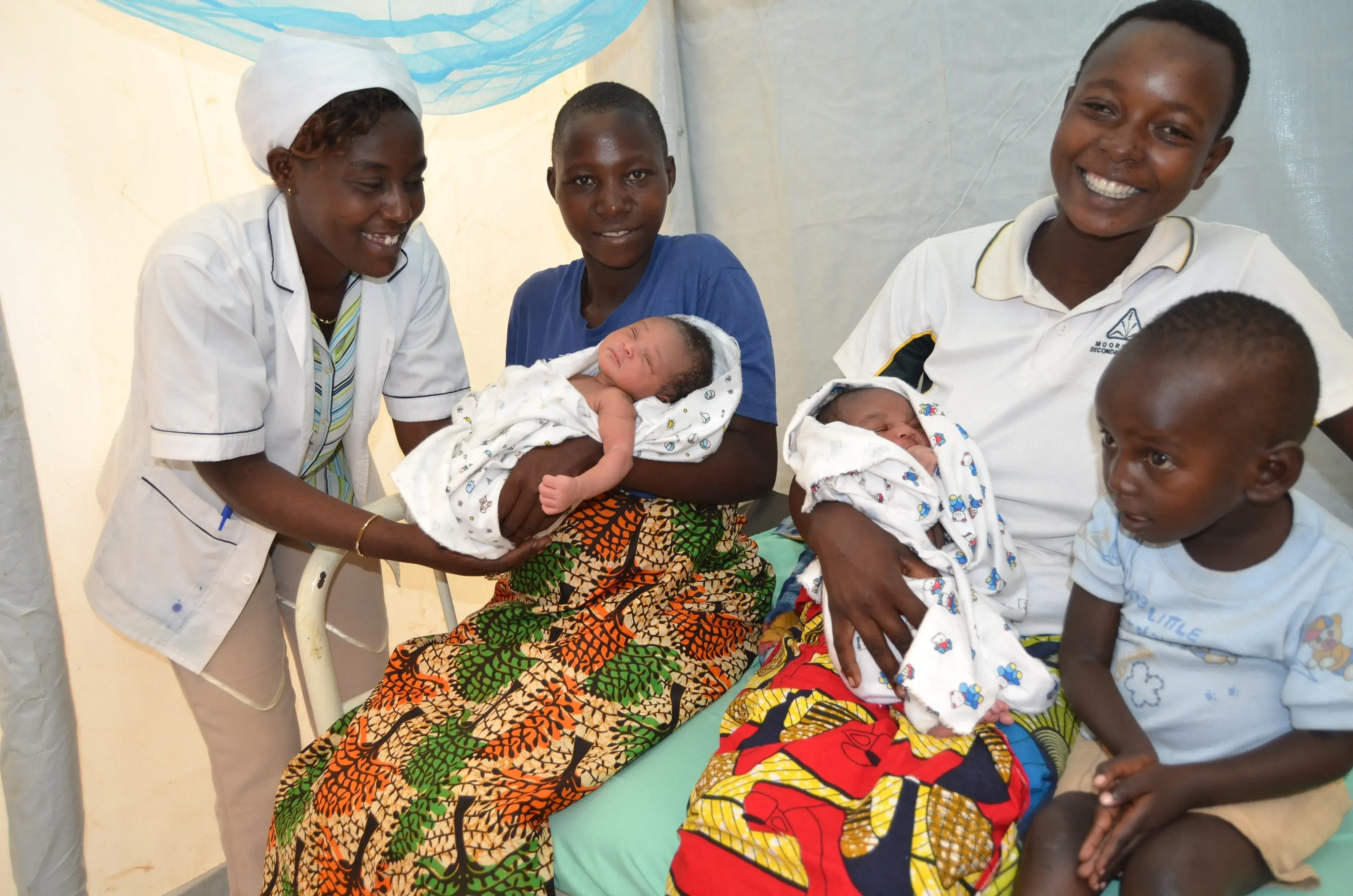Nigeria is the most populous country in Africa. Nigeria’s youth-dominated age structure, with approximately 44 percent younger than age 15, will have a significant effect on the growth rate. In addition, the fertility rate is high, at an average of 5.7 children per woman. The use of family-planning (FP) methods in Nigeria is low.
The Federal Ministry of Health (FMOH) and its partners recognize that the achievement of a deceleration in the population growth rate requires an effective and efficient contraceptive logistics management system (CLMS). The effort to strengthen the CLMS began with a baseline assessment in 2002 to provide key baseline indicators on the performance of the contraceptive supply chain at all levels. The assessment provided program planners with information to design interventions to improve the CLMS and to measure progress toward reproductive health commodity security (RHCS) over time.
Findings from a second assessment in 2005 indicated that reporting and ordering were problematic. To address those issues, a streamlined system was designed and piloted to improve efficiency.
This 2007 assessment serves as a follow-up to the previous assessments to gather information on the national stock status of all contraceptive commodities at the facility level, as well as to identify current commodity management practices throughout the system. The report documents the findings and recommendations of the study.





